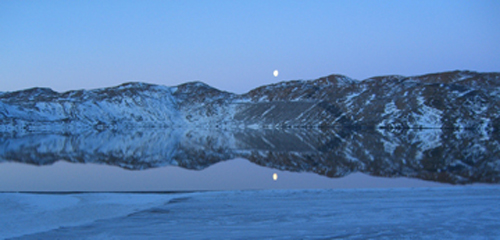Antarctica’s Deep Lake was isolated from the ocean by glaciers long ago, creating a salt water lake with a unique ecosystem for studying the evolution of marine microorganisms in harsh extremes. Among these microorganisms are haloarchaea, members of the halophile community which need high salt concentrations in order to grow.
Haloarchaea are a distinct evolutionary branch of the Archaea, and are considered extremophiles. The haloarchaea from Deep Lake are naturally adapted to cold, nutrient-limited and high saline level conditions that would kill almost any other life. The enzymes in these naturally adapted microorganisms can provide insight into bioprospecting and bioengineering cold active and salt-adapted enzymes. Understanding how haloarchaea transform natural substrates under these conditions will also provide more information on biological transformations under such extremes. Perhaps the most important aspect of haloarchaea is their high activity at low temperature, which could be used to develop engineering concepts capable of reducing energy costs for a variety of consumers. Additionally, the haloarchaeal sequences could be used to benefit processes such as cleaning up contaminated sites in permanently or seasonally cold regions, maintaining low temperatures for food preservations or cleaning applications that require heat.

Photo: © Darron LehmannAustralian Antarctic Division 2006,
Deep Lake, Broad Peninsula, Vestfold Hills
Principal Investigators: Rick Cavicchioli, University of New South Wales
Program: CSP 2010